16 things you should know about the International Day of the African Child
Every June 16th we observe the International Day of the African Child to raise awareness around the continuing need for quality education and opportunities for children in Africa. Here are 16 things you should know about this day and ways Save the Children is working to ensure children of Africa realize their rights:
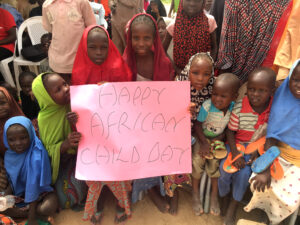
1. The youngest population
Africa has the youngest population in the world, with almost 600 million children under the age of 18. This number is predicted to expand by 40% by the year 2050, making African children very central to the continent’s future.
2. Violations against children
Between 2014 and 2018, there were more than 55,882 horrific violations against children in conflict-affected areas in Africa. This included children being killed, maimed, or sexually assaulted – despite commitments by African leaders to end all wars on the continent by 2020.
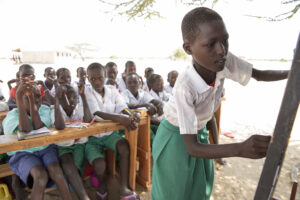
3. International Day of the African Child background
The International Day of the African Child was started in 1991 by the African Union to commemorate the lives of many students who died during the student uprising in Soweto, South Africa on June 16, 1976. Around 10,000 black students marched a half-mile route protesting poor quality of education and demanding their rights to be taught in their language, as opposed to Afrikaans. Now the day is a public holiday in South Africa, referred to as Youth Day, and is also recognized as the International Day of the African Child throughout the rest of the world.
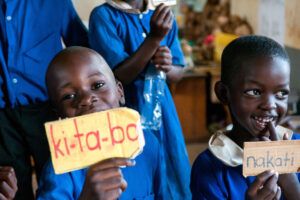
4. Discussion of challenges
On June 16 every year, governments, NGOs, international organizations, and other partners and participants come together to discuss the challenges and opportunities around the rights of children in Africa.
5. Theme for this year
The theme for the International Day of the African Child this year is, “The rights of the child in the digital environment.”
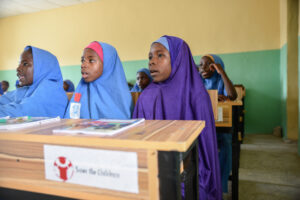
6. Learn about accomplishments
The International Day of the African Child 2023 presents an opportunity to learn about accomplishments, as well as reflect on what more needs to happen to effectively eliminate harmful practices affecting children in African countries.
7. Issues Affecting Young Girls
A couple of the harmful practices that this day brings awareness to are early marriage and gender-based violence against young girls.
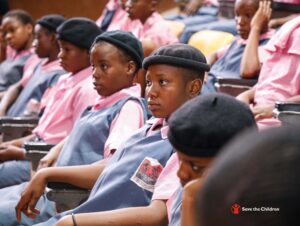
8. Education for Crises Affected Girls
The Education for Crises Affected Girls (ECG) Project in northern Nigeria is a Save the Children project funded by Global Affairs Canada. This two-and-a-half-year project is working to support crisis-affected girls, between the ages of six and 14, to learn and exercise their equal rights to quality education and gender equality.
9. A platform to discuss rights of children
During a celebration of the International Day of the African Child, the Education for Crises Affected Girls (ECG) Project held a commemorative event, featuring politicians, community leaders, decision-makers, and children to discuss the rights of children, in particular girls, to feel safe at school. Following the event many students shared their hopes around education, including, “We want the government to protect our school against attacks.”
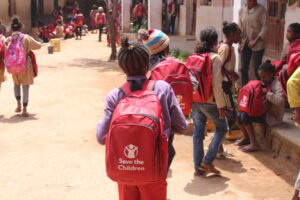
10. Barriers to Education
The pandemic prevented many children from attending school. For example, 500,000 children dropped out of school in South Africa during the pandemic. In combination with a lack of education, children face food insecurity, limited access to health care, rising poverty, and vulnerability to child marriage, abuse, and violence.
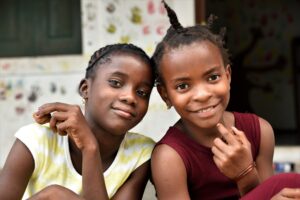
11. She Belongs in School project in Mozambique
In 2021, Save the Children launched She Belongs in School, a five-year project focused in the areas of Nampula and Niassa in Mozambique. With funding from Global Affairs Canada, this project works with adolescent girls between the ages of 10 and 19 who have been in and out of school for various reasons. Young girls in the program are learning their rights, with a focus on their right to education.
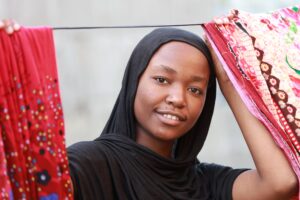
12. Child advocates against violence
Children in African countries advocate for their rights, like 17-year-old Asia from Zanzibar, Tanzania. With help from Save the Children, Asia learned about child rights and became a child rights campaigner, engaging youth and working to prevent violence against children in her community. Asia urged the government to strengthen policies and laws to punish those who abuse children.
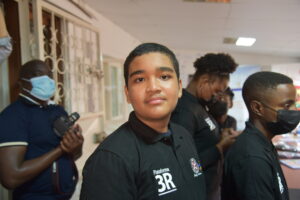
13. Political impact of children
Fourteen-year-old Mustafa in Mozambique is a child parliamentarian who said, “I would love to see Mozambique free of child rights violations.” Mustafa and other child parliamentarians spoke to leaders, including CEO of Save the Children International, Inger Ashling, about the issues in their communities that most affect them.
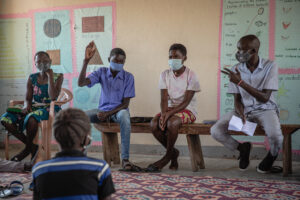
14. Child Rights Groups
Save the Children hosts Child Rights Groups in refugee settlement camps in Uganda. Fifteen-year-old Jonathan became a child campaigner and shared the concerns and needs of children with the Minister of State for Higher Education in Uganda. Jonathan encouraged his peers to learn and helped them strive for a better education, leading to brighter futures.
15. Ni Someshe! Project in eastern DRC
In eastern DRC, high levels of violence against children prevent them from attending school, which exposes them to risks, including child early forced marriage, gender-based violence, and recruitment into gangs by armed forces. Ni Someshe! (Teach me!) is a Save the Children project, funded by Global Affairs Canada that started two years ago. The project targets girls between the ages of six and 16 years old, improving their realization of their right to attend school and providing vocational education for girls, including survivors of sexual and gender-based violence.
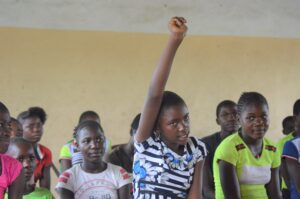
16. Gifts of Joy to support humanitarian work
To observe the International Day of the African Child, consider purchasing a Gift of Joy, like Educate Two Girls. This gift will help provide books, learning materials, and access to education, which can be the turning point in a child’s life.


